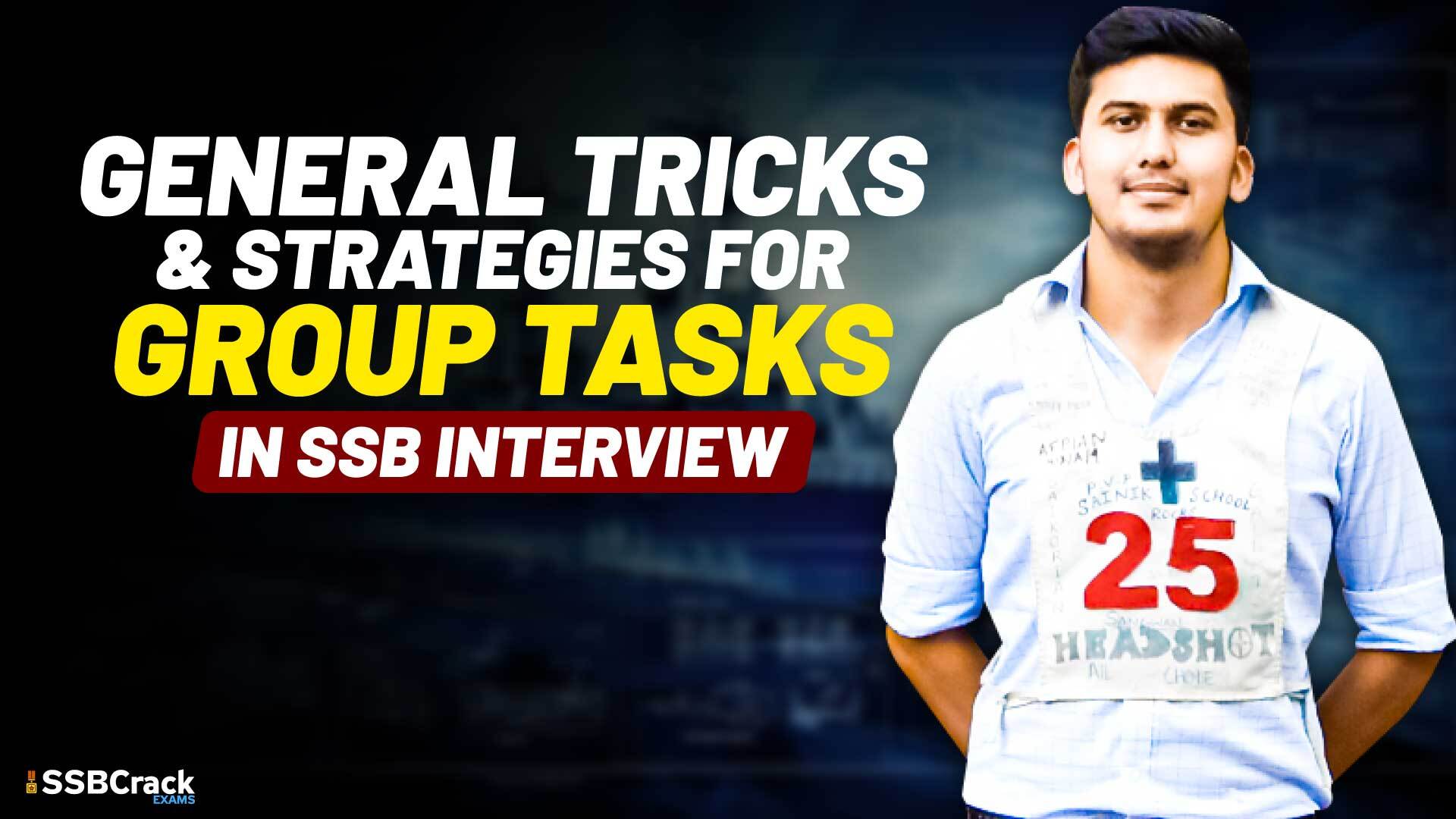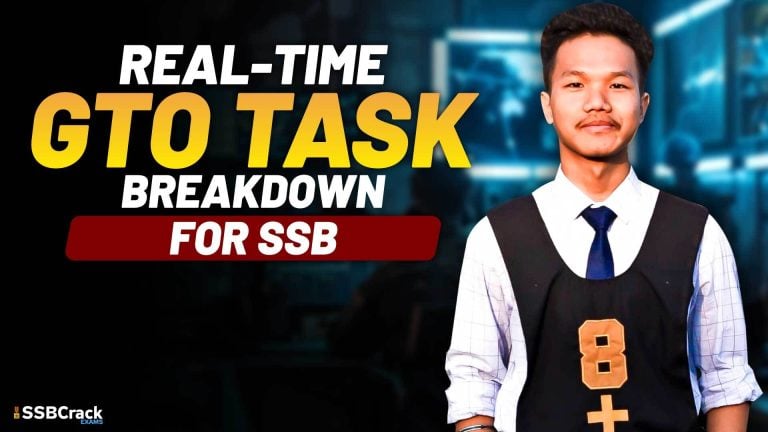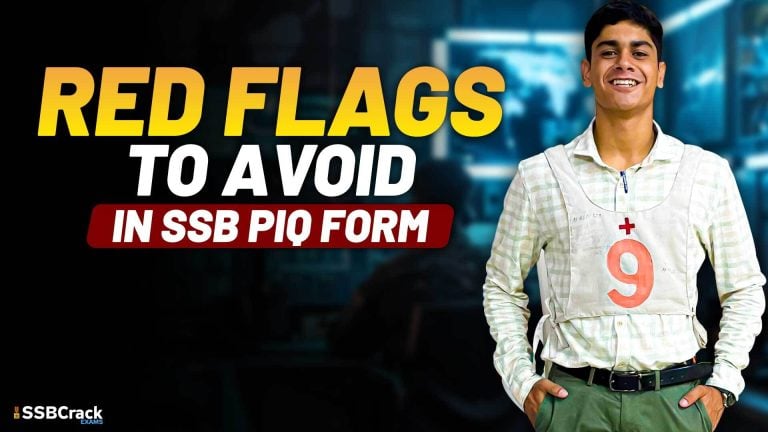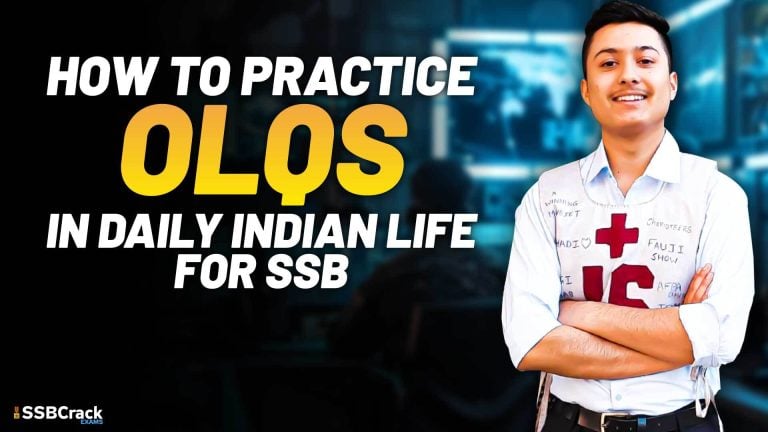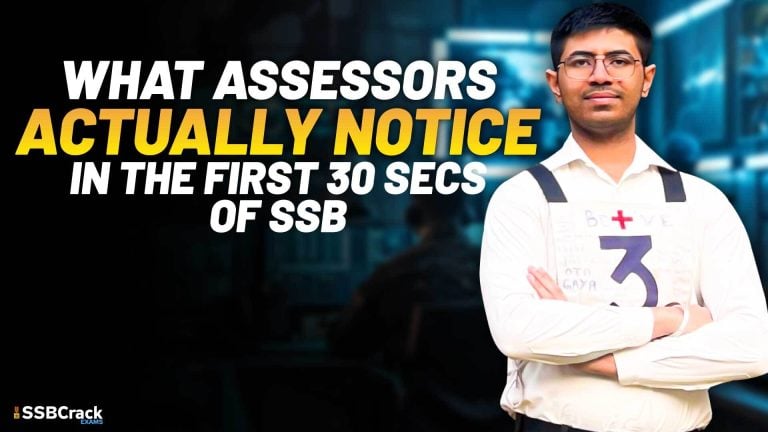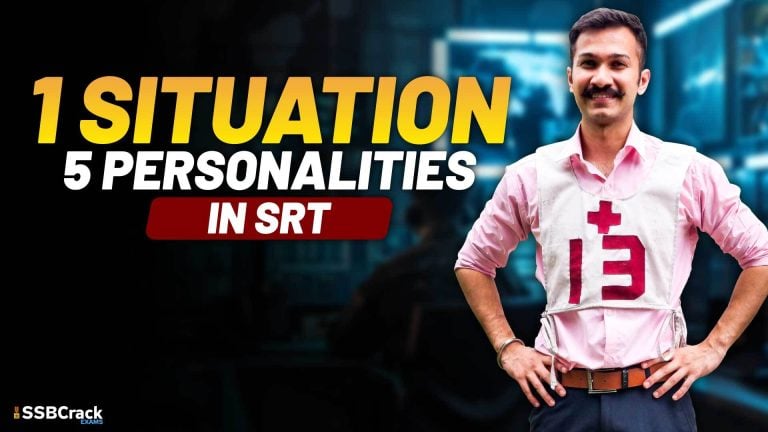The Group Tasks in the SSB Interview are conducted under the guidance of the Group Testing Officer (GTO) to assess your team spirit, leadership, initiative, practical intelligence, and problem-solving ability. While individual brilliance matters, what truly gets you recommended is how well you work in a team environment under pressure.
In this article, let’s break down the general tricks, strategies, and mindset needed to ace all group tasks — including PGT, HGT, GPE, GOR, CT, FGT, and more.
What are Group Tasks in SSB?
Group Tasks form a major portion of GTO series (Day 3 & 4) and typically include:
- Group Discussion (GD)
- Group Planning Exercise (GPE)
- Progressive Group Task (PGT)
- Group Obstacle Race (GOR / Snake Race)
- Half Group Task (HGT)
- Lecturette
- Command Task (CT)
- Final Group Task (FGT)
These tasks are used to observe your:
- Officer Like Qualities (OLQs)
- Cooperation & Social Adaptability
- Reasoning & Organizing Ability
- Stamina & Determination
- Leadership Under Pressure
General Strategies & Tricks to Ace Group Tasks
✅ 1. Think & Observe Before You Act
- Don’t rush in blindly. Whether it’s PGT or GPE, take a few seconds to assess the situation, materials, and team dynamics.
- In physical tasks, look for color codes, load rules, and material positions.
- In discussions, let the first few seconds guide your approach.
✅ 2. Be a Team Player – Not a Show-off
- SSB is not about dominating. It’s about inclusive leadership.
- Encourage quieter members. Help others climb obstacles. Share your materials.
- Avoid phrases like “No, you are wrong.” Instead say, “Let’s also try this method.”
✅ 3. Speak with Substance in GD & GPE
- In Group Discussions, come with facts and opinions, not noise.
- Be clear, calm, and logical. Use examples to support your point.
- In GPE, make a quick note of problems, prioritize them, divide resources, and present clearly.
✅ 4. Use Structured Communication
Whether in a group plan or while giving directions, structure your sentences:
Situation → Action → Reasoning
- “Since the accident victim is bleeding, I’ll call the ambulance first while asking a friend to manage the crowd.”
In PGT:
- “Let’s place the plank here, tie it with rope for stability, and cross one by one while carrying the load.”
✅ 5. Show Physical & Mental Participation
- Don’t just give ideas—lift the planks, support teammates, carry the load.
- Use both your brain and body to prove you are field-ready.
✅ 6. Demonstrate OLQs Consistently
Some key OLQs to show:
- Initiative – Suggesting first steps or volunteering
- Effective Intelligence – Logical problem-solving
- Cooperation – Supporting others without hesitation
- Stamina – Staying active and composed even in last task
- Determination – Not giving up in tough obstacles or under peer pressure
✅ 7. Avoid These Common Mistakes
🚫 Arguing with teammates
🚫 Ignoring others’ ideas
🚫 Violating color rules in PGT/HGT
🚫 Staying silent or passive
🚫 Being over-aggressive or bossy
🚫 Failing to respect group unity
✅ 8. Adapt Based on the Task
- In Lecturette: Structure your speech as Intro → Facts → Analysis → Conclusion.
- In GOR (Snake Race): Cheer, chant war cries, and help teammates over obstacles. Team spirit matters more than finishing first.
- In CT (Command Task): Choose responsive subordinates, give clear orders, and remain calm while executing.
✅ 9. Leadership is Not Loudness
True leaders listen, guide, and act. Even if you aren’t the loudest voice, you can:
- Suggest better alternatives
- Encourage the quietest member
- Keep the team motivated
✅ 10. Be Consistent & Natural
Don’t try to act like someone else. Stay natural and be the same person in every task. The assessors look for consistency in personality across GTO tasks, interview, and psychology tests.
Final Thoughts
Group tasks are not about being a one-man army — they’re about showing that you can lead from the front, support from behind, and function smoothly within a team. That’s what the Armed Forces want — someone who can think, act, and lead under pressure.
If you keep these strategies in mind, you’ll not only perform better but also feel more confident and in control throughout your GTO series.
